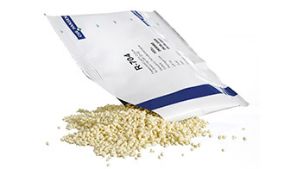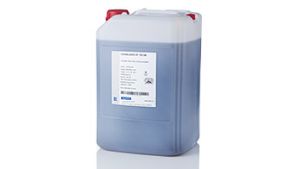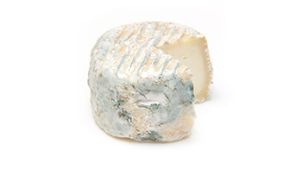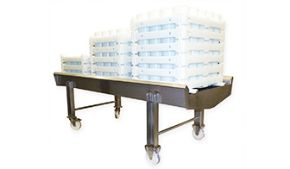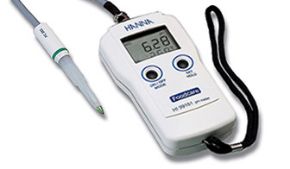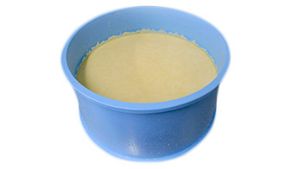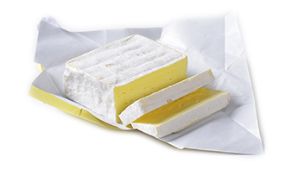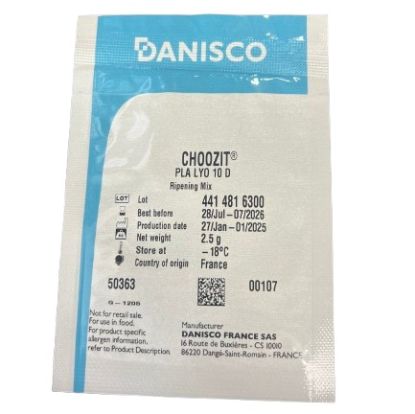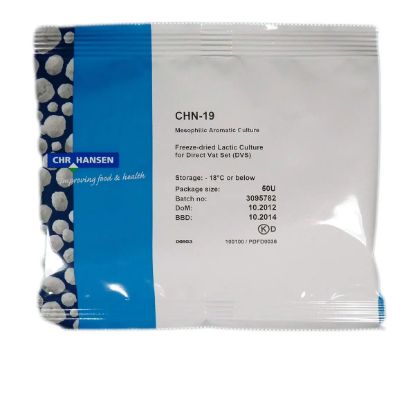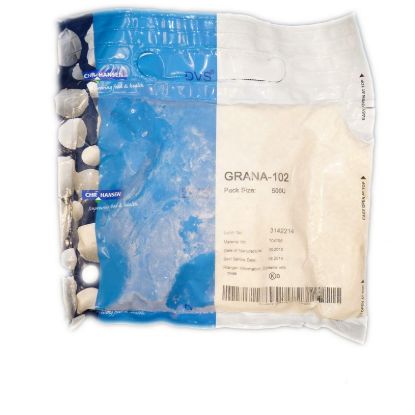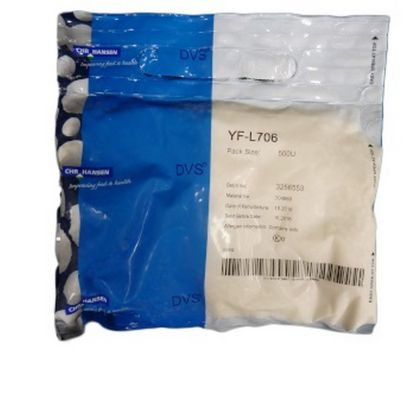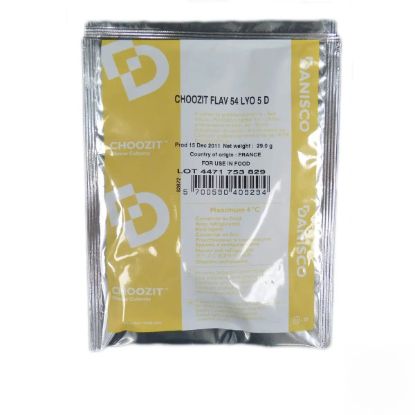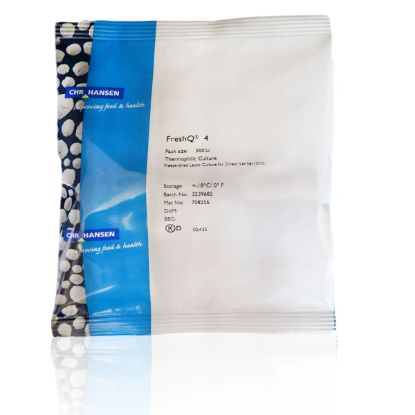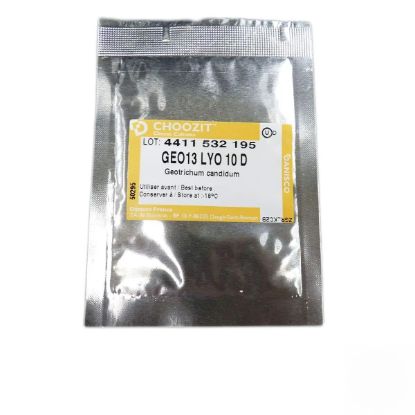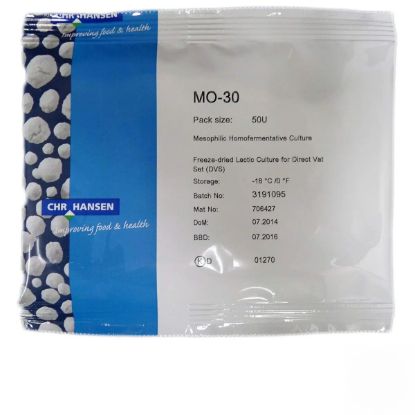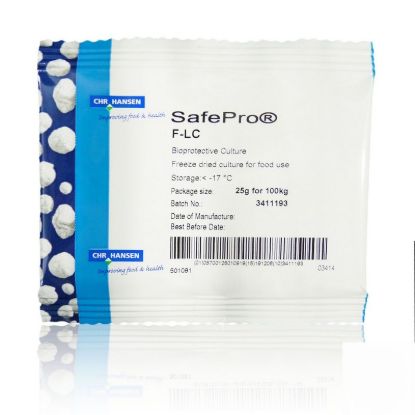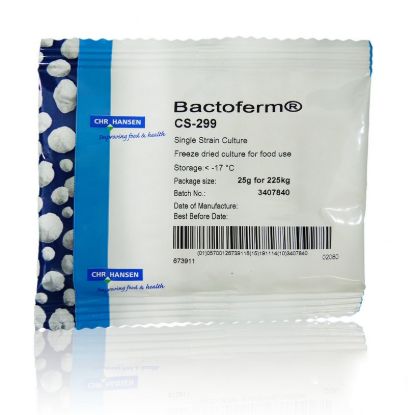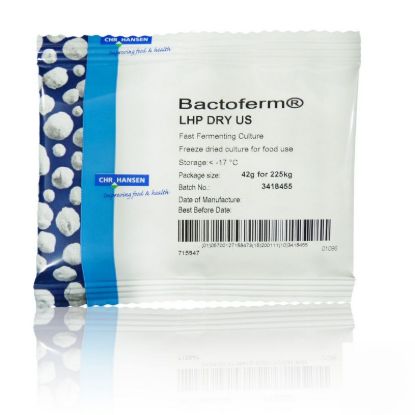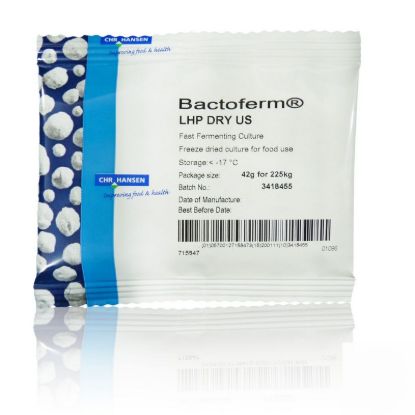Cultures
Choosing the right cultures for your application is the basis of your success. Here you will find the different ranges of cultures available.
CHN-19 Freeze-dried 50 u
Mesophilic aromatic culture, type LD.
The culture produces flavor and CO2.
This range provides cultures with fast acidification properties at a low inoculation rate.
As a principal rule 1000 U of freeze-dried DVS cultures will correspond to 100 l of active bulk starter.
However, specific usage rates should be determined experimentally before a new application.
MA 11 Freeze-dried 250 DCU
Freese-dried concentrated lactic starter for the direct vat inoculation of milk and milk bases.
GRANA-102 Frozen 500 u
This Chr.Hansen DVS culture contains defined thermophilic and mesophilic strains and is for continous direct vat set use.
The culture provides fast lactic acid production, high phage robustness and a profound flavor and texture contribution.
The culture is primarily applied in the production of hard cheese varieties (e.g.Parmesan, Reggianito, Sardo, Goya and Roomy), which are characterized by a compact and granular texture.
The culture provides a complex, mature cheese flavor with sweet, fruity and nutty notes.
YF-L706 Frozen 500 u
Thermophilic YoFlex culture.
The culture will produce yoghurt with very mild flavor, very high viscosity and very low post-acidification.
Suitable for cup set, stirred and drinking youghurt.
MA 4002 Freeze-dried 25 DCU
Freeze-dried concentrated lactic starter for the direct vat inoculation of milk and milk bases.
BC Swing Freeze-dried 10 u
A selected single strain culture with origins in traditional cheese making.
Brevibacterium is one of the most important surface bacteria for its role in coloring the surface of the cheese, and producing flavor.
The culture may be applied in the production of low fat soft and semi-hard cheeses, soft cheeses with hard cores, or Mozzarella.
LAF 4 Swing Freeze-dried 10 u
Selected yeast single strain with origin in traditional French cheese making.
SWING LAF cultures are an important tool in cheese making since they may be used to affect curd neutralization, texture and flavor.
Yeasts are common in traditional raw milk cheeses but ar rarely found in industrially produced cheeses.
Therefore adding selected and controlled yeast cultures to the cheese may improve quality.
The yeast culture may be used to provide a balanced flavor and medium to high levels of CO2 formation in Kefir type products.
The culture will provide flavor and medium to high CO2 formation.
FreshQ 4 Freeze-dried 500 u
The FreshQ cultures are combinations of traditional lactic acid bacteria that deliver inhibition of unwanted yeast and moulds in fermented dairy products.
The effect is obtained through active participation in the natural fermentation.
The cultures are added in combination with the normal starter culture in the production of fermented dairy products.
The cultures are developed for application in e.g. Fresh cheese, yoghurt, sour cream.
MO-30 Freeze-dried 50 u
Mesophilic homofermentative culture, type O.
This culture contains specially selected strains chosen for their phage resistance and ability to produce lactic acid quickly.
This culture does not produce CO2.
The culture is primarily used in the manufacture of Continental cheese types with no eyes and short texture (e.g.Pecorino) and soft cheese specialties.
Bactoferm SM-75 25g
Bactoferm SM-75 is a culture for enhancing color and flavor formation in cured meat products. The culture has a high salt tolerance and secures the formation of pleasant curing flavor and stable color.
The culture is well-suited for all cured or cold fermented meat products.
SafePro F-LC
SafePro F-LC is a freeze-dried food culture for fermented meat products. It drives acidification and supports color and flavor development. The culture has the ability to help control the growth of Listeria monocytogenes.
The culture is recommended for traditionally fermented sausages, especially for North and South European type sausages.It promotes a pleasant flavor development.It is suitable for molded and smoked products.The final pH may be regulated by adjusting the added amount of fermentable sugars.
Bactoferm SM-194 25g
Bactoferm SM-194 is a culture for production of traditionally fermented sausages with a short production time. The culture provides a strong and stable color and an aromatic flavor. The yeast adds to the flavor development.
The culture is well-suited for all fermented sausages with a short production time. The final pH may be regulated by adjusting the added amount of fermentable sugars.
Bactoferm CS-299
Bactoferm CS-299 is a culture which has a high salt tolerance and secures the formation of pleasant flavor and stable color at low temperatures.
The culture is recommended in the production of raw cured meat products, cooked cured meat products and raw fermented sausages.
Bactoferm FRM-52
Bactoferm F-RM-52 US is a mixed meat culture for production of fast fermented meat products at 22-32 C (72-90 F). The culture ensures a unique flavor and a good color development.
The culture is recommended for the production of fast fermented North European style sausages e.g. German Mettwurst and Danish salami, but it is also well suited for the production of Mediterranean style sausages.
Bactoferm Rosellac 266
Bactoferm Rosellac 266 is a culture for production of traditional fermented sausages with a short production time. The culture provides a fast acidification and a strong, stable color and an aromatic flavor.
The culture is well-suited for all fermented sausages with a short production time. The final pH may be regulated by adjusting the added amount of fermentable sugars.
SafePro B-LC-007 US
SafePro B-LC-007 US is a freeze-dried food culture for fermented meat products. It drives acidification and supports color and flavor development. The culture has the ability to help control the growth of Listeria monocytogenes.
The culture is recommended for fast fermented sausages. It promotes a stable color and strong flavor development, with the yeast adding to the flavor.The final pH may be regulated by adjusting the added amount of fermentable sugars.
Bactoferm T-SPX 25g
Bactoferm T-SPX is a culture for production of traditionally fermented sausages. The culture gives a mild acidification and provides a good flavor and color development.
The culture is recommended for the production of traditional Mediterranean type sausages e.g. French Saucisson and Italian Salami.
Bactoferm LHP-DRY US
Bactoferm LHP-DRY US is a culture for production of very fast fermented sausages at high temperature with a short production time. The culture has a high salt tolerance and ensures a quick initiation of the acidification process.
The culture is recommended for the production of very fast fermented American style sausages e.g. American pepperoni or Summer sausage. It provides a sausage with a firm texture and a good flavor.
Bactoferm MOLD-600
Bactoferm MOLD-600 is a culture which produces a white/light grayish appearance on the surface of molded dried sausages, and a well pronounced mushroom flavor and aroma.
With high humidity and optimum temperature, the culture is fast growing, and produces a dense, short white surface coverage with an even appearance (typically found in France).
The culture promotes a traditional white mold cover with a moderate to good ability to control the surface flora and suppress the growth of undesirable organisms such as indigenous molds, yeasts and bacteria.
During the drying process the culture is effective in preventing the emergence of dry rim. Furthermore, during maturation, the mold promotes an increase in pH and a less sourish flavor.
This product is developed for use in the production of animal based meat products.
SafePro B-LC-48 US 25g
SafePro B-LC-48 is a freeze-dried food culture for cooked cured meat products. The culture has the ability to help control the growth of Listeria monocytogenes.
The culture is recommended for cold stored ready-to-eat meat products, especially for cooked and potentially sliced meat products which are packed under vacuum or modified atmosphere. The culture grows within a wide temperature range down to 4 C (39 F) and survives freezing. To reduce acidification, lactose is recommended.
SafePro Flora Italia LC US
SafePro Flora Italia LC US is a freeze-dried food culture for fermented meat products. It drives acidification and supports color and flavor development. The culture has the ability to help control the growth of Listeria monocytogenes.
The culture is recommended for fast fermented sausages.It promotes a stable color and Mediterranean flavor development.The final pH may be regulated by adjusting the added amount of fermentable sugars.
Bactoferm HPS DRY US 50g
Bactoferm HPS DRY US is a culture for production of very fast fermented sausages at high temperature with a short production time. The culture has a high salt tolerance and ensures a quick initiation of the acidification process.
The culture is recommended for the production of very fast fermented American style sausages e.g. American pepperoni or Summer sausage. It provides a sausage with a firm texture and a good flavor.

